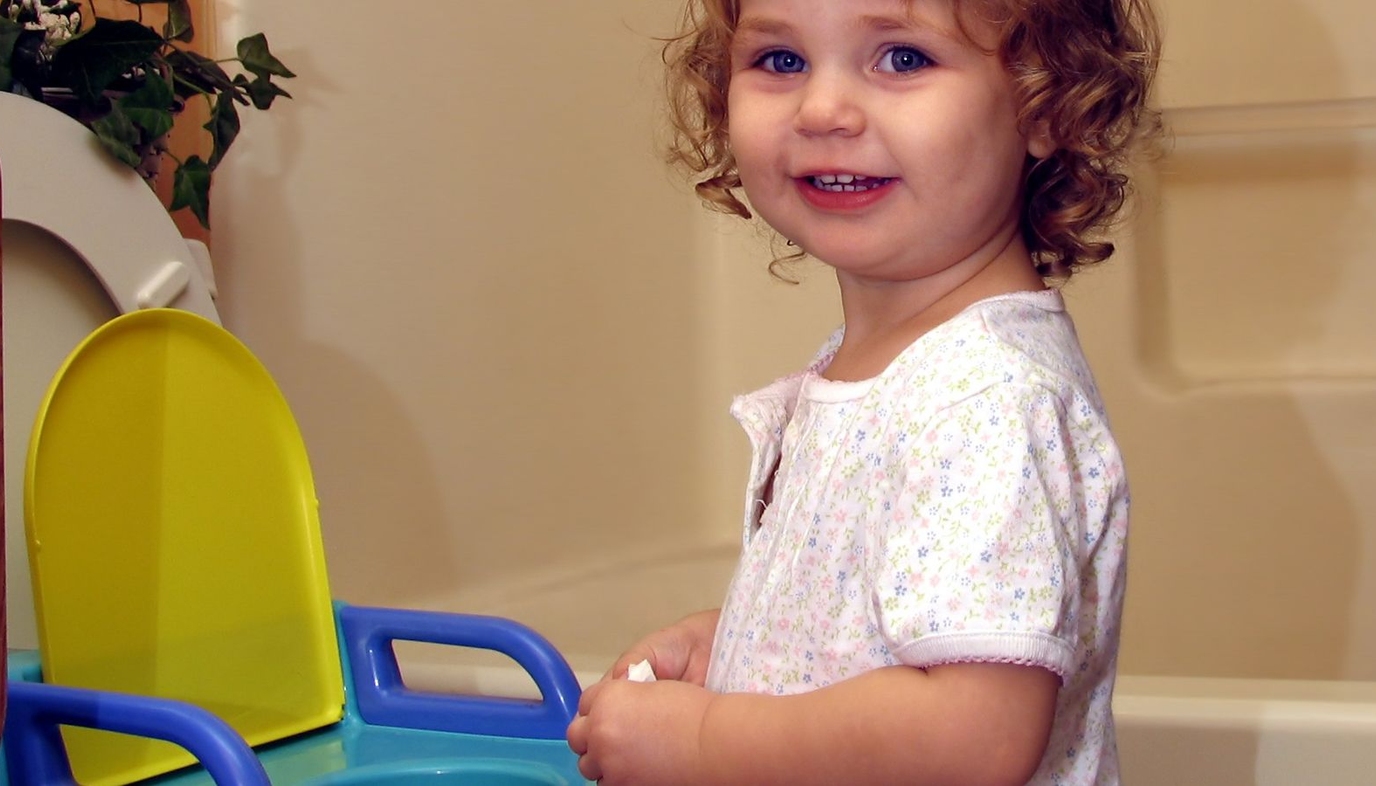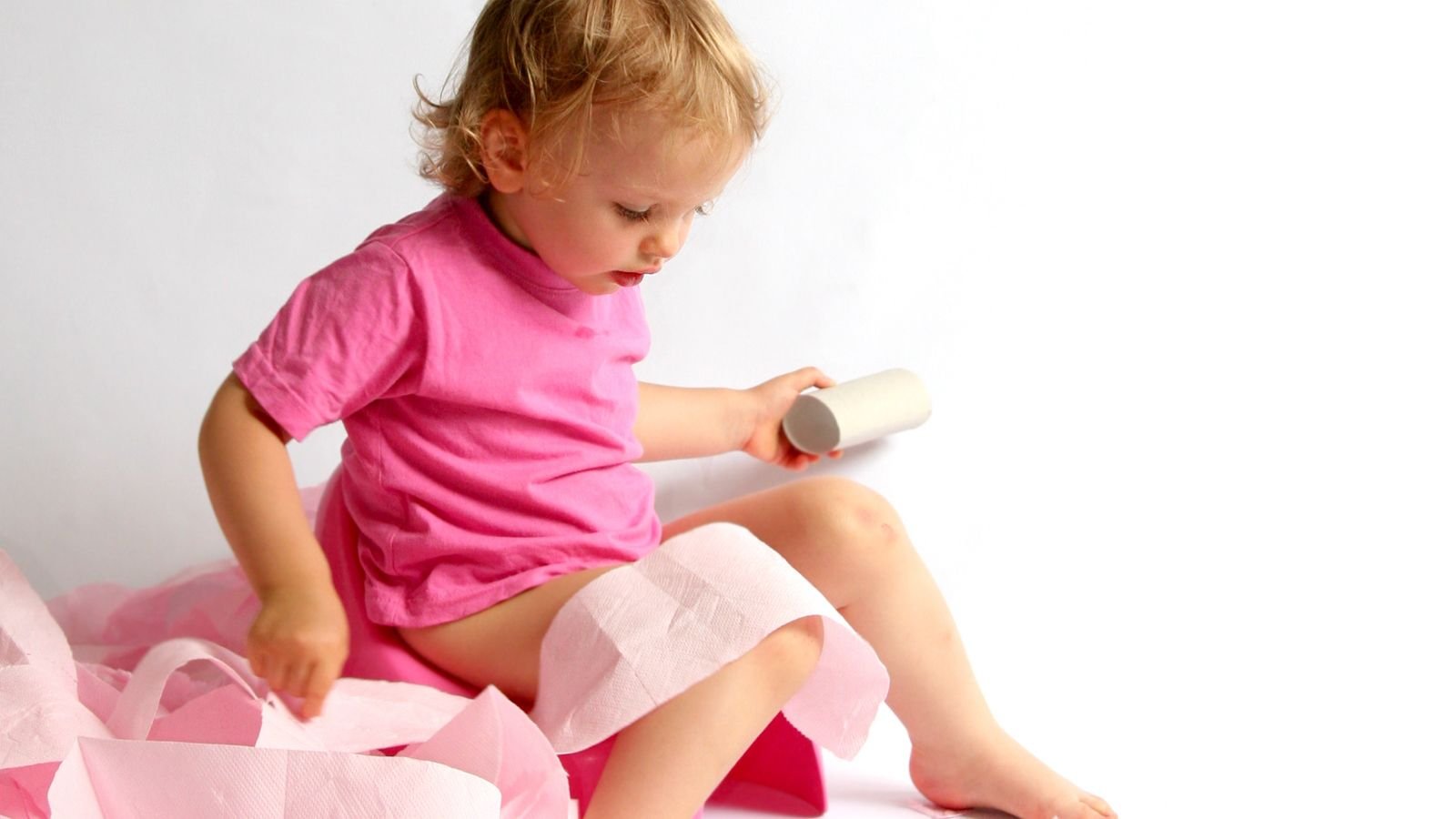
Dealing With Potty-Training Resistance
You’ve played the potty-training videos, you’ve read the potty-training books, you’ve dangled their favorite toys as incentives, and still, your little one will do anything to avoid using the potty. While some kids transition from diaper to potty without ever looking back, others will dig in their heels and resist for months or even years. So what do you do if you have a full-fledged case of potty-training resistance on your hands?
For starters, you have to accept that there is no good way to fast-track toilet training before your little one is truly ready. Most experts suggest that children are ready to learn anywhere between 18 and 30 months. Readiness signs include a child’s ability to pull his or her own pants up and down, to respond to simple commands, and to be aware when he or she needs to “go.” A child also needs to show some recognition of what the potty is for and some interest in using it. But beyond that, there’s no “right” age; and even siblings within the same family may be ready at vastly different ages or stages
Additionally, it’s important to understand that potty-training is a control issue, and in this case, your child is the one who has the control. If they’re not ready, they (or their bodies) will find a way to let you know. And if potty training becomes a power struggle, the best course is often to back off for a few weeks before starting again. The last thing you want is a potty-training rebellion on your hands that involves withholding, along with bladder infections or constipation issues.

It’s also important to remember that potty-training is rarely a one-shot operation. Learning how to identify when one needs to “go” – and remembering to do it – is a difficult process that can take young children weeks or months to master. Nighttime training can take much longer than training during the day. Learning to poop in the potty is often scarier and more difficult than learning to pee. And there’s always the prospect of “one step forward, two steps back,” when accidents can happen months after you thought you had it all under control.
That said, there’s nothing wrong with gently trying to move the process forward if your child is otherwise developmentally ready.
Strategies For Potty Training Resistant Children
- “Sweetening the pot” by adding a few strategic incentives to rev up their interest when the time is right. Many families have had success with sticker charts, planned rewards, and even the occasional M & M after a productive trip to the bathroom.
- Creating subtle peer pressure by giving your little one opportunities to hang out with older children and to witness them taking care of bathroom business on their own.
- Having them take responsibility for themselves in the bathroom; i.e. if they are wearing Pull-Ups, put them in charge of pushing the Pull-Up down, wiping, pulling it back up again, and washing their hands themselves.
- Keeping their diet healthy – with plenty of liquids and fiber – so that they stay regular and don’t get in a painful pattern of withholding.
- Staying neutral – as hard as it may be – when your child resists potty-training. The less they see it as a battle of wills, the less likely they are to rebel. But of course, feel free to celebrate the big milestones when they occur.

If you are concerned that your child is far behind his or her peers in toilet-training, or if your child suffers from constipation or bladder infections, have your doctor give your child a thorough evaluation. But otherwise, have patience and remember the old truism: They won’t go to college wearing diapers. It’s only a matter of time before they evolve from diapered dependents into confident, underpants-wearing kids.
